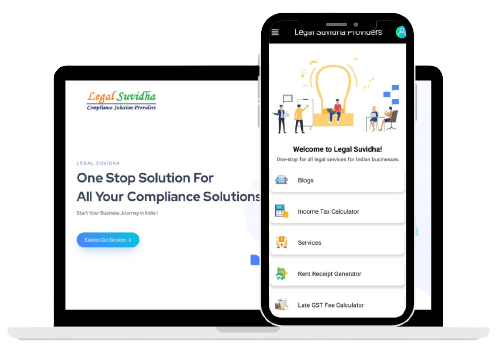ISO 27001: Information Security Management
ISO 27001: Information Security Management – A Simple Guide In today’s digital world, keeping sensitive information safe is more important...
A non-disclosure agreement can help you focus on your business by relieving concerns about sharing personal information with a third party. Whether you already own a business or are planning to start one, there may be situations where you need to share sensitive information, but with a non-disclosure agreement in place, you can be assured that your confidential information is protected.

Happy Clients
Years Experience

Happy Clients
Years Experience
A non-disclosure agreement (NDA) is a legal contract that restricts the disclosure of confidential information to third parties. This agreement can be made with an individual or an organization to protect sensitive information such as trade secrets, business plans, strategies, drawings, and software programs. NDAs are commonly used by consultants and agencies who work with multiple organizations in the same industry to prevent the disclosure of confidential information.
An NDA typically outlines what information is considered confidential, the duration of the agreement, and any exclusions or limitations on the use of the confidential information. The parties involved in the agreement are bound to keep the information confidential for the duration of the agreement and are restricted from sharing or disclosing the information to any third party without prior written consent.
| Protects sensitive information | An NDA helps protect sensitive business information such as trade secrets, client data, and other proprietary information |
| Prevents breaches of confidentiality | NDAs prevent employees, contractors, and business partners from disclosing confidential information to unauthorized parties |
| Legal protection | An NDA provides legal protection in case of a breach of confidentiality. It helps in pursuing legal remedies and protects against financial losses due to the unauthorized use of confidential information |
| Builds trust | NDAs build trust between business partners and clients by assuring them that their confidential information is safe and secure |
| Maintains competitive edge | By protecting trade secrets and other confidential information, an NDA helps maintain a competitive edge in the market |
Step 1: Consultation: Contact Legal Suvidha to discuss your specific needs and requirements for the NDA. They will guide you through the process and ensure that the agreement covers all necessary aspects.
Step 2: Identify confidential information: Identify the specific information that needs to be protected under the NDA, such as trade secrets, client data, business plans, and proprietary information.
Step 3: Define the parties involved: Clearly identify the parties involved in the agreement, including the disclosing party and the receiving party.
Step 4: Specify the purpose of disclosure: Include the purpose of the disclosure, such as a potential business partnership, project collaboration, or employment relationship.
Step 5: Set out the restrictions: Set out the restrictions on the use and disclosure of confidential information. Specify the duration of the agreement and any exceptions or exclusions.
Step 6: Include any additional terms: Include any additional terms that may be relevant, such as provisions for return or destruction of confidential information, indemnification, and governing law.
Step 7: Review and sign: Review the NDA with Legal Suvidha to ensure that it meets your requirements and legal standards. Once you are satisfied with the agreement, sign it along with the other party or parties involved.
Legal Suvidha can provide guidance and assistance throughout the entire process of writing a non-disclosure agreement to ensure that it is legally binding and provides the necessary protection for your business.
1. Identification of the Parties: The names and contact information of all parties involved in the agreement, including the disclosing party and the receiving party
2. Confidential Information: A clear and specific definition of the confidential information that needs to be protected under the agreement, including any limitations or exclusions
3. Purpose of Disclosure: The purpose for which the confidential information is being disclosed, such as for a potential business partnership, project collaboration, or employment relationship
4. Restrictions on Disclosure: The restrictions on the use and disclosure of confidential information, including any limitations on the duration of the agreement
5. Return or Destruction of Confidential Information: Provisions for the return or destruction of confidential information at the end of the agreement
6. Governing Law: The governing law of the agreement, which may vary depending on the jurisdiction of the parties involved
Legal Suvidha can assist you in drafting a non-disclosure agreement by providing guidance and ensuring that all necessary information and documents are included to meet your specific requirements.
Unless the employee publicly discloses information that identifies the employer, the NDA is solely enforceable against the employer. Non-compete clauses, confidential information, and trade secrets are exceptions.
As there is a lot on the line when it comes to trade secrets, they are made to safeguard a company’s private information. The NDA’s phrasing must be exact in order for any violations to be upheld by a court. This is why it’s important to treat these agreements carefully.
Non-disclosure agreements are frequently used by businesses to safeguard their intellectual property. Employee nondisclosure agreements decrease the possibility of any information being stolen or disclosed by rival businesses or other unauthorised third parties.
No, an NDA does not apply to illegal activity.
#answer
#answer
#answer
#answer
With a commitment to exceeding expectations and a passion for delivering results, choosing us means choosing a partner dedicated to your success.

We provide free of cost consultation and legal advice to our clients.

We are a team of more than 15+ professionals with 11 years of experience.


All our services are online no need you to travel from your place.

There are no hidden & extra charges* other than the quote/invoice we provide.

We aim that all our customers are fully satisfied with our services.

We value your time and we promise all our services are delivered on time.

We provide free of cost consultation and legal advice to our clients.
In this Journey of the past 14+ years, we had gained the trust of many startups, businesses, and professionals in India and stand with a 4.9/5 rating in google reviews.We register business online and save time & paperwork.
Trustindex verifies that the original source of the review is Google. Mayank & the Legal Suvidha team are fantastic. They really try to understand the business like insiders and don't give you templatized solutions. The staff are extremely supportive and go out of their way to help you. I would recommend Mayank to anybody new to the startup ecosystem!Trustindex verifies that the original source of the review is Google. Great experience with smooth process during the startup india registration Excellent coordination and teamwork with effective implementation in very limited timeTrustindex verifies that the original source of the review is Google. Sound expertise, good coordination, efficient and timely execution.Trustindex verifies that the original source of the review is Google. Good service and very helpfulTrustindex verifies that the original source of the review is Google. We had a great experience working with the LegalSuvidha team - we have used them for both our Pvt Ltd and LLP formation and their team has been very proactive, knowledgeable, prompt and helpful. They helped with all DSCs as well and couriered them to us. Very professional and thorough. We also got our Startup India , MSME registrations through them promptly. Overall highly recommended. Special callout to Nidhi, Saloni, Anjalin, Shreya and Priyanka for promptly helping us throughout the process.Trustindex verifies that the original source of the review is Google. I am writing to thank you for the quality of service provided by your company. We sincerely appreciate your efficient, gracious customer service, the level of detail and accountability you have demonstrated and the way you conduct business as a whole. A special Thanks to Ms Saloni for her great help throughout.Verified by TrustindexTrustindex verified badge is the Universal Symbol of Trust. Only the greatest companies can get the verified badge who has a review score above 4.5, based on customer reviews over the past 12 months. Read more


Explore more of our blogs to have better clarity and understanding
of the latest corporate & business updates.
ISO 27001: Information Security Management – A Simple Guide In today’s digital world, keeping sensitive information safe is more important...
Operating an online store comes with numerous benefits—but also regulatory obligations. Securing the right licenses and permits is essential to...
Directors shape a company’s governance and strategic direction. Among board members, Executive Directors and Non‑Executive Directors (NEDs) play distinct yet...
The Articles of Association (AOA) form the backbone of a company’s internal governance, setting out the rules, rights, and responsibilities...
Selecting the optimal legal form is a critical decision when launching your U.S. venture. Both LLCs and Corporations offer liability...
Expanding your U.S.-based business into India unlocks access to a vast consumer market, a skilled workforce, and cost advantages—but also...
Here are some answers to potential questions that may arise as you start your business.
Register your business, obtain necessary licenses, and fulfill tax obligations.
Consider factors like ownership, liability, and tax implications to choose from options like sole proprietorship, partnership, or company registration.
Choose a unique business name, obtain required IDs like Director Identification Number (DIN), and file incorporation documents with the Registrar of Companies (ROC).
Obtain GST registration, trade licenses, and any industry-specific permits required to operate legally.
Maintain accurate financial records, file tax returns on time, and adhere to the tax laws applicable to your business.
Yes, startups in India can benefit from various government schemes offering tax exemptions, funding support, and incubation facilities.
Secure patents, trademarks, or copyrights to safeguard your intellectual assets from infringement or unauthorized use.
Challenges include navigating bureaucratic hurdles, complying with complex regulations, and competing in a crowded marketplace.
Looking For More Information? Contact Us
Sign up to receive email updates on new product announcements, special promotions, sales & more.
Redefining the experience of legal services. Now all Professional Services in a Single Click !


Copyright © 2025 Legal Suvidha Providers LLP. All rights reserved.
